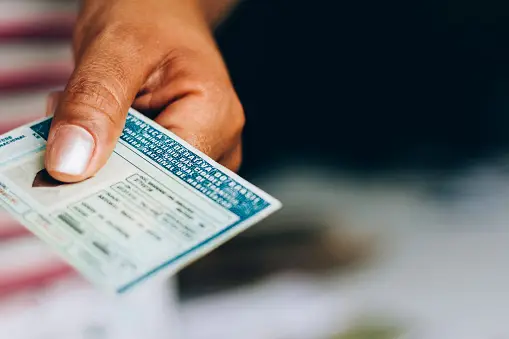
It’s obvious that you will feel discouraged when you wake up and see that you don’t have a driver’s license or it’s suspended. You may experience difficulty commuting, even getting to work, without driving. The causes of driver’s license suspension are many, including traffic violations, DUI/DWI, hit-and-run accidents in Canada, etc. We’ll speak about the common ones in a while.
First, understanding traffic tickets is essential. Traffic tickets are like getting caught breaking a driving rule. If you get too many, you might have to pay a fine and could even lose your driving permit for a while. This is to keep everyone on the road safe.
Okay, but what can you do to get back your license? Let’s check the common steps.
-
Determine the Reason for the Reinstatement
Determine who is at fault. This is essential! Typical causes include:
-
- Traffic Citations: A suspension may result from accumulating infractions.
- DUI/DWI: Driving while intoxicated has severe consequences, such as license suspension.
- Unpaid Fines: Failure to appear for court dates or tickets may result in suspension.
- Hit-and-Run Accidents in Canada: Revocation of a license may result from escaping an accident (Canada, for example). But what is the main difference between revocation and suspension? Check our previous blog Driver’s License Suspension/Revocation: What You Need to Know
- Traffic Violation and Criminal Charges: Revocation may be imposed for serious offences like vehicular manslaughter or recurrent violations.
-
Attend DMV Hearings
For many violations, especially DUI/DWI cases or accumulated points, you will need to attend a DMV hearing. This is how to get ready:
-
- Collect Evidence: Gather any relevant documentation, including medical records, police reports, and any other proof you might use to strengthen your claim.
- Engage a Lawyer: A highway traffic lawyer may represent you in court and increase the likelihood that your case will turn out well.
- Be Ready: Prepare an explanation of the reasons for your suspension and a list of any actions you took to make things right.
-
Complete Traffic School for Point Reduction
Participating in traffic school for a driver’s license can lead to points reduction and demonstrate your dedication to safe driving:
-
- Schools with State Approval: Verify that the DMV of your state has authorized the traffic school.
- Certificate of Completion: Present the completion certificate to the DMV.
- Benefits of Insurance: Your insurance premiums might be lowered by completing traffic school.
-
Pay Off Unpaid Fines and Violations
Pay attention to any unpaid penalties or unresolved traffic violations:
-
- Pay Penalties: Make sure that all penalties are fully paid.
- Appearances in Court: Attend all mandated court appearances and follow any rulings from the court.
- Prevent Additional Violations: Take caution when driving and abide by all traffic regulations to avoid more fines.
-
Consult a Highway Traffic Lawyer
A highway traffic lawyer can often be helpful, particularly in complex cases:
-
- Case Review: A lawyer will assess your situation and recommend the best line of action for you.
- Representation: They are able to stand in for you in court and DMV hearings.
- Negotiation: Lawyers are capable of negotiating lower fines or other punishments on your behalf.
-
Make Use of Online Resources for Lawyers
You can opt for online lawyer lookup to find the right specialists when you don’t have a lawyer.
-
- Directories of Law: To locate lawyers in your region that specialize in traffic law, use internet directories.
- Evaluations and Suggestions: Make sure you choose a respectable lawyer by reading reviews and getting referrals.
-
Handle DUI/DWI Cases Carefully
Manage cases of DUI/DWI cautiously. DUI/DWI cases call for the following steps:
-
- Program Requirements: Finish any mandatory alcohol education or drug misuse courses.
- Ignition Interlock Devices: DUI offenders must have these devices in several states.
- Legal Assistance: To reduce fines and negotiate the complicated legal procedures, speak with a lawyer.
-
Extend Your License to Drive Appropriately
Driver’s license renewal is important to prevent needless issues:
-
- Verify Expiration Dates: Put the dates of the renewals in your calendar so you don’t forget them.
- Needs for Renewal: Recognize the requirements for renewal, such as written examinations or visual tests.
- Maintain Documents: Keep copies of all renewal papers and keep your documentation up to date.
-
Avoid Hit-and-Run Situations
Hit-and-run accidents in Canada may result in serious repercussions.\
-
- Always come to a stop and give the other person involved your information.
- Inform the police about the collision as soon as you can.
- If you are involved in a hit-and-run, speak with a lawyer to learn about your rights and obligations.
-
Talk About Traffic Violations and Criminal Charges
For significant traffic violations and criminal charges, follow these steps:
-
- Legal Assistance: Engage a lawyer to guide you through the court system and prepare your defence.
- Gather Proof: Collect all relevant evidence, including video and witness accounts.
- Recognize Consequences: Recognize the possible consequences and seek legal assistance to lessen them.
To get your driver’s license reinstated, you must be aware of the reasons for its suspension or revocation and take the appropriate action to resolve them. All of these actions — attending DMV hearings, finishing traffic school, or consulting with a highway traffic lawyer — are essential to proving that you are committed to driving safely. For more legal insights, subscribe to LawVo. You may speed up the reinstatement process and steer clear of future license-related issues with us.
Back to blogs